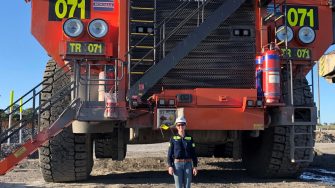Q&A with graduate mining engineer Phoebe McAuliffe
Are you curious about the fascinating world of mining and mineral engineering? Phoebe, a UNSW mining graduate and current graduate mining engineer at BHP shares how she unexpectedly came across the field and her time studying at UNSW!

